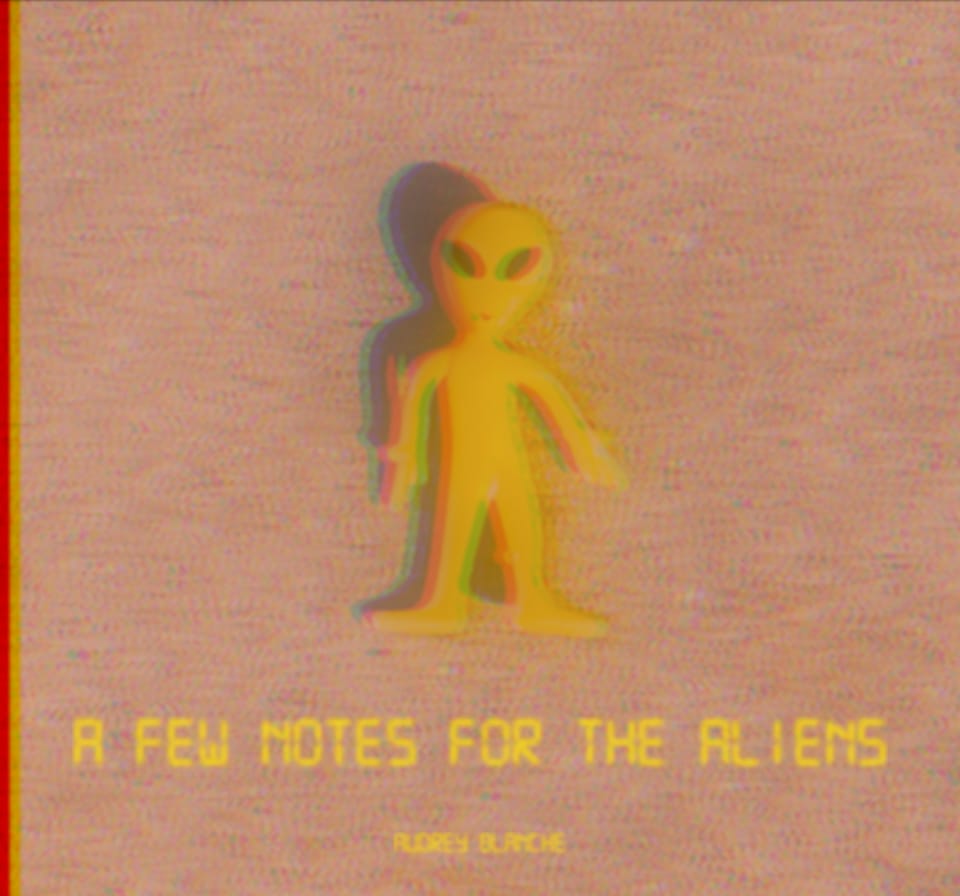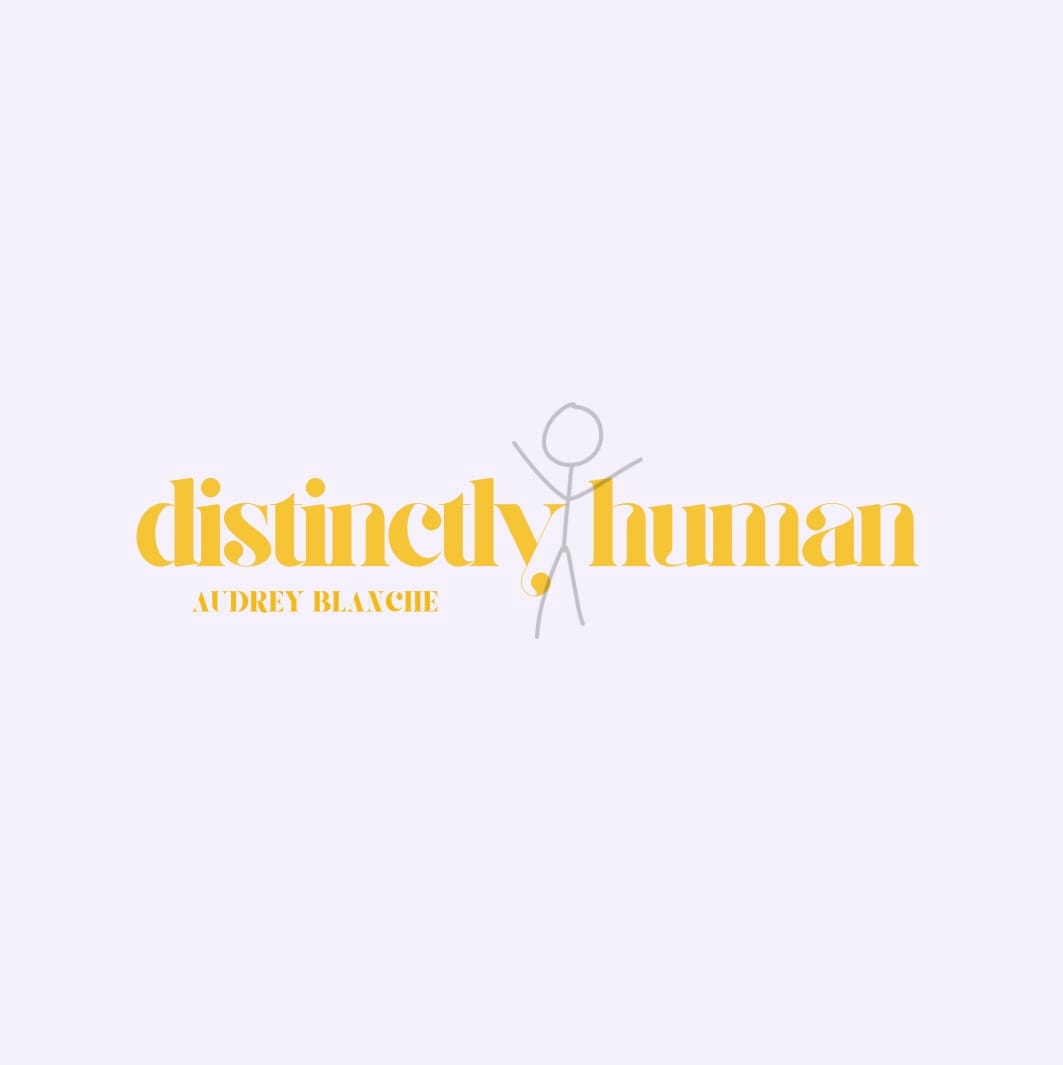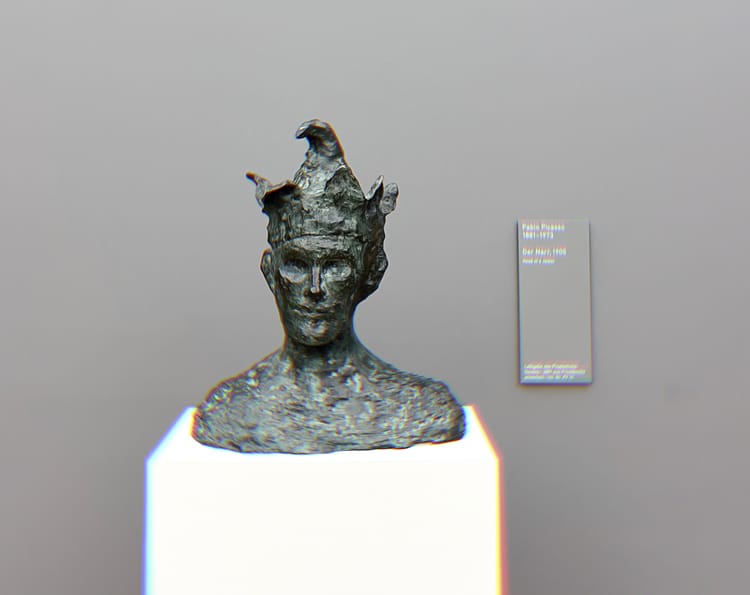A Few Notes for the Aliens

Mind Under Construction
A few notes for the Aliens is an idea I’ve been working on in various moving parts for about a year. This endeavor first began as constructing instrumental music in my free time and is my first attempt at creating a thought-evoking experience, pairing music to a series of statements to get your mind moving. Consider this a “think piece” with music (available on all streaming services!). After spending the last 12 months trying out different things, I finally landed on the concept: A Few Notes for the Aliens. With the world seeming to be in constant turmoil (at least this is how it appears if you’re in your 20s), I wanted to find a way that best captures my point of view and observations on the state of humanity. I didn’t want it to be boring, so I sat with it for a bit. Eventually, I stumbled upon “what if I explained it to aliens?” Bear with me as we dive into this hypothetical world, I call my brain.
If aliens were to come, what would they need to know about us and the state of the world? In this scenario, being the pacifist I am, I have first determined that if an intelligent life form comes to greet us on this planet, and they are somehow able to survive where they are not equipped to live, we wouldn’t fight them. Instead, we are embracing their arrival and giving them a “few notes” in exchange for what we might be able to learn from them. Each of the following 8 statements has a long thought process behind it. What I’ve determined to be most important to communicate to the aliens are topics that describe where humanity is today. What are the pressing issues the planet faces? Who are the inhabitants, and what does it mean to be one?
111 Dialing In
The corpus begins by making contact with the aliens. It’s essential to ease into the interaction, as both parties approach each other unsure of the other. Playing defense against another intelligent life form would be surrendering the planet. The first to arrive is surely more advanced. Instead, the earth group is luring them in. Two forms of intelligence would be a rival, but is a rivalry a feasible option for the universe? With hesitance, both must learn about the other. A tour of humanity is necessary, as well as of Earth.
Everybody’s on their own little mission (Everybody’s on their own)
Now that the acquaintances have warmed, track 2 opens sounding a bit chaotic. People surround our protagonists as they enter the streets of a bustling city, senses flooded with overwhelm. As the tourists begin to ease, there is a realization that everyone is living their own complex, intricate life.
What the aliens may be unaware of, is how personal the journey is to everyone. What people work towards, and how they work towards it is the journey of each individual. However, this inevitably leads to discord. The innate path of an agent is met with influence, decision, and friction. The aliens may remain unaware that each individual is on a journey to self-actualization.
The antique philosophical debate over whether humans are “universally selfish” or “universally good” may carry on as long as existence is under scrutiny. Recent research tells us that this is a spectrum, the selfish-selfless spectrum. Where an individual falls on the spectrum is dependent on a variety of factors driven by the complementing age old debate: nature v nurture. Inevitably, there will be forces that hinder an agent's ability to make the decisions aligned with their path. Distractions appear in forms of ease and challenges interpreted as setbacks. Perhaps the path of an individual is more responsive than resolute.
Time is inescapable due to the Sun
After giving some insight into what humanity looks like, it’s essential to elucidate the parameters of how this planet operates. Time itself is rather fluid, and perceived uniquely by each body. The passage of time is dependent on context filtered by the mind: mood, activity, attention, expectation, memory, etcetera. Mammals are not the only organisms on the planet to experience time. Plants have their own internal timekeeping mechanism helping to, “integrate endogenous and external cues to ensure that coordinate growth and developmental processes occur at the right time of the day and year” (Sanchez et al., 2020). We are made accustomed to our planet, we abide by the Sun. On the moon, one day is equivalent to 29.5 earth days, on Mars it’s 24 hours 37 minutes, and on Jupiter a day is about 10 Earth hours. Pluto’s day is approximately 6.4 of ours. It would be essential to know the mechanisms by which life on this planet operates. We’ll wait to tell them about the nocturnals.
Due to the inability to be ubiquitous in time, and thanks to an individual's flexibility in perception, the individual may find themselves losing track of time. Boredom makes for a long day, repetition makes them short. Repeated boredom proposes a hypothesis for purgatory. The sun will set and rise again. How many days does the agent allow it to pass by? How many days is the agent actively advocating for their own volition?
The robots are learning the freedom of thought
Perhaps, the aliens will come from a more advanced society if they’ve found us before we’ve found them. Nonetheless, track four takes a peek into how fair humanity has advanced from its own evolution. Arguments can be made for both sides on the development of artificial intelligence. Either way, it’s learning to think for itself.
The only place an individual may find themselves truly alone, is in the world of their thoughts. Thoughts run unsupervised until they are observed. Freedom itself is an anomaly. To say the individual is free to be themselves without external influence is a hard argument to make. Identity is shaped through social influence, providing context to the individual. Who one chooses to surround themselves with, activities they participate in, and the knowledge they seek all play fundamental roles in understanding the “self.” The self is an agent responsible for thoughts and actions. If a thought is generated by neurons firing and the external environment leads to the neurons firing, are the thoughts of an individual free or original? If we are not the thoughts we have, but instead the awareness of the thought. Does the ability to observe thoughts make the agent freer than thought itself?
As artificial intelligence (AI) and machine learning continues to develop, where is the line of consciousness? Does AI match the merriam-webster definition of consciousness, “the quality or state of being aware especially of something within oneself; the state or fact of being conscious of an external object, state, or fact?” In creating the parameters of consciousness for artificial intelligence, how will their trained free thought differ from that of humanities learned?
You can’t take anything with you (when you go)
Track 5 sits as the mid piece of the body of work. Our protagonists have reached a turning point. It’s the precipice society is on now. Similar to how all agents arrive on this planet, empty handed, is how they will leave it. Analogously, each agent expresses a personality and opinion early on. Between arrival and departure, the agent will undergo a series of challenges, peaks, adjustments, lessons learned (and unlearned), and faults. All culminating to a reformed version from the first to last breath.
For an agent to pass on with nothing except for what’s innate is a boundary of sorts. What’s left behind by an individual is memory. Timestamps of emotion, thought, whimsy. In the current age of digital consumerism, how does one maintain individuality? The voices of the people blend like a mosh pit. A sea of consumers morphs to one. Expression of the self, timestamps, are lost upon the masses to trend. Encouragement of the individual to participate in consumption blinds them to the innate. Desire to socialize is surpassed by desire itself. While trend has maintained its place as the epicenter of popular culture, the welfare of participation has decreased juxtaposing advancement. A majority of new homes built are dummy’s of their neighbor’s. Jumping from impulse to impulse, as well as failing to leap, challenges the individual to maintain their identity, creating a distance from the agent and the “self.” What will the agent, individual, and the “self” agree upon to take with them?
We whisper hello as we walk down the street
The beginning of the “B side,” opens up with birds chirping. Individuals residing in their world of thoughts pass each other's worlds letting out an under the breath, “hello.” This is a common expectation of passersby. Engaging with others in some form and participating in acts of common courtesy is a way of validating the individuals we see in passing. The cold shoulder discredits the existence and value of other individuals. As nice as this phenomenon is, there is a problem.
Common courtesy is in its infancy of becoming a dead language. It can still be saved. The typical agent surrenders its thoughts to a device, interacting more often with this think machine than their own. Distancing themselves from the individuals around them as each becomes warped in a new curated world of their own. In lieu of the agents taking initiative to validate the others they share common space with, they choose to authenticate holograms. More often than not, now, the agents are brought together by common interest. Utilizing their freedom to decide where they take their body. Rarely are these agents brought together by circumstance, where socializing would be necessary.
Communities are being aggregated through algorithms, creating echo-chambers without challenge, stunting the growth of the physical community. While becoming more socially accepting, the agents are concurrently becoming less trusting. “A belief that members of society share common values fosters social trust, but perceptions of partisan divisions and polarization make people less trusting of their fellow citizens. Due to perceived polarization, people are less likely to believe that others can be trusted to do the right thing, which in turn decreases their willingness to cooperate for good causes,” (Lee, 2022).
Mother Earth is getting hotter, beauty must be respected
Track 7 seeks to unpack the muddle of what the planet is going through. It’s necessary that our protagonists gain an understanding of the environment’s desperation for savior. Earth herself continues to fight for survival, damaging those who have evolved with her. As part of this evolution, it’s the responsibility of the agents to care for the continuation of evolution and the environment.
Symmetrical to the way agent's treat the environment, is the treatment of women. It’s not lost upon many of the individuals that the treatment of the planet mirrors that of women. On this planet, “Around 2.4 billion women of working age are not afforded equal economic opportunity,” and, “Globally, women still have only three quarters of the legal rights afforded to men” (World Bank). In the United States, “About four-in-ten working women (42%) say they have faced discrimination on the job because of their gender” (Parker & Funk, 2017) and most Americans (66%) believe there is not full equality for Women (Georgetown).
Incessantly, women do not have a voice to advocate for themselves. Instead, women, like nature, have had to leave it up to someone else. Lately, nature has been retaliating as best it knows how. Natural disasters are becoming harsher and more frequent, where 1960 saw 39 incidents and 2019 saw 396 (Visions of Humanity). In addition to the short-term effects of climate change, there are long-term effects such as food security, water resources, human health, migration patterns, and biodiversity. With this, “women are more vulnerable to the effects of climate change than men—primarily as they constitute the majority of the world’s poor and are more dependent for their livelihood on natural resources that are threatened by climate change,” (UN). Mother nature is getting hotter, her beauty demands our respect. This track is meant to be reflective and and induce wonder for our protagonists. Beauty is best preserved through respect.
Parting thoughts for the journey home
As the protagonists say their goodbyes, the narrator has one last message for both parties. “Glued to the back of my mind forever is my high school principal's end of morning announcements tagline, “make it a great day or not, the choice is yours.” One day, he forgot his reminder to us, which made for an abrupt ending to the announcements. We all sat there surprised commenting on the oddity, but carried on. A few moments later he was back on to advise that the choice remains ours.”
The freedom of choice gives way to illusions that individuals have control over their lives. Though, the agent does have more authority than they may believe, as each agent lives in a constant stream of decisions. To believe one has no control over the outcome, is to believe nature is imbecilic. However, failure to recognize the roles in which humanity plays in continuing to allow for, and contribute to, the passing down of systemic issues like they are folktales, is egregious. There is a responsibility from individual to individual, from individual to planet, and from individual to self.
Citations
Lee, Amber Hye-Yon. “Social Trust in Polarized Times: How Perceptions of Political Polarization Affect Americans’ Trust in Each Other.” National Library of Medicine , U.S. National Library of Medicine, 2022, www.ncbi.nlm.nih.gov/pmc/articles/PMC8932466/.
Lieberman, A & Schroeder, J. (2020, February). Two social lives: How differences between online and offline interaction influence social outcomes. Science Direct. https://www.sciencedirect.com/science/article/abs/pii/S2352250X1930065X
“Nearly 2.4 Billion Women Globally Don’t Have Same Economic Rights as Men.” World Bank, World Bank Group, 8 Mar. 2022, www.worldbank.org/en/news/press-release/2022/03/01/nearly-2-4-billion-women-globally-don-t-have-same-economic-rights-as-men.
Parker, Kim, and Cary Funk. “Gender Discrimination Comes in Many Forms for Today’s Working Women.” Pew Research Center, Pew Research Center, 14 Dec. 2017, www.pewresearch.org/short-reads/2017/12/14/gender-discrimination-comes-in-many-forms-for-todays-working-women/.
Sanchez, S. E., Rugnone, M. L., & Kay, S. A. (2020, February 13). Light perception: A matter of time. Cell. https://pubmed.ncbi.nlm.nih.gov/32068156/
Sonne, J., & Gash, D. M. (2018, April 19). Psychopathy to altruism: Neurobiology of the selfish-selfless spectrum. Frontiers in psychology. https://www.ncbi.nlm.nih.gov/pmc/articles/PMC5917043/
“Increase in Natural Disasters on a Global Scale by Ten Times.” (2021, September 18). Vision of Humanity. www.visionofhumanity.org/global-number-of-natural-disasters-increases-ten-times/#:~:text=A%20look%20at%20data%20over,Threat%20Register%20(ETR)%20shows.
“What Do Americans Say about Gender Equality? .” GIWPS, Georgetown, 15 Mar. 2021, giwps.georgetown.edu/us-index-survey-results/.
“Women, Gender, Equality and Climate Change.” (2024). Unwomen. https://www.un.org/womenwatch/feature/climate_change/downloads/Women_and_Climate_Change_Factsheet.pdf






Member discussion